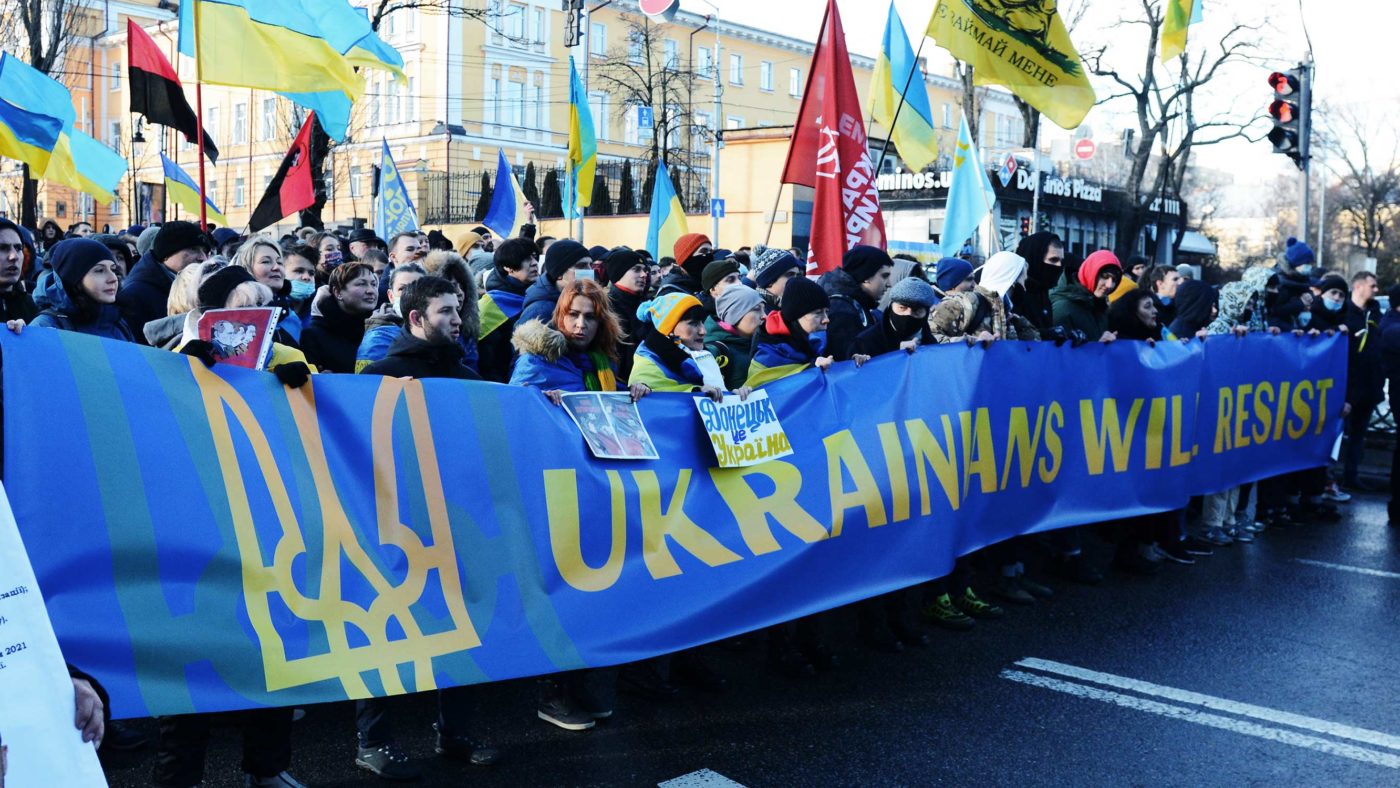When it comes to the defence of Ukraine, language matters.
First, there are the all too common slip-ups – referring to ‘the Ukraine’, or calling a state that’s been independent since 1991 a ‘post-Soviet republic’. To some these may seem innocuous, even pedantic, but they reinforce the perception, keenly felt by many Ukrainians, that their country is still defined in relation to Russia, rather than as a nation in its own right.
Perhaps the most insidious idea, the one Putin himself leans on endlessly, is ‘Nato expansionism’. It’s a phrase that implies some kind of rapacious all-conquering war machine, rather than a defensive membership organisation which eastern European countries gladly signed up to, precisely to protect themselves from Russia. To parrot that terminology not only does Putin’s work for him, but denies the agency of those countries.
We’ve come to expect this genre of Kremlin-issue revisionism from the useful idiots of the hard left. The Stop the War Coalition should really be called the Stop The West Coalition, given it will oppose anything America or the UK does, even if it means siding with a neo-fascist kleptocrat.
What’s more concerning is when this kind of language creeps beyond the fringes of Corbynite crankery to mainstream outlets. Just this week the BBC published a staggeringly disingenuous article entitled ‘What is Nato and why doesn’t Russia trust it?’. The same piece also reheats various Kremlin-issue talking points about ‘security concerns’ and supposed promises that Nato wouldn’t ‘expand’. (It’s still not the worst BBC article on eastern Europe, which must be this ludicrous explainer entitled ’Stalin: National hero or cold-blooded murderer?’.)
That piece is one of the most startling examples of how news outlets attempting ‘balance’ can do the public a grave disservice. This situation is not about ‘tensions’, it’s not a ‘Ukraine crisis’ nor, to quote a particularly egregious Simon Jenkins article, ‘a border dispute’. It’s one country defending itself from another’s aggressive bullying.
Even warnings that Russia ‘may invade Ukraine’ rather miss the point that Russia already has invaded chunks of Ukrainian territory.
Talk of ‘rebels’ in ‘breakaway regions’ in eastern Ukraine suggests some kind of noble struggle for independence – which is doubly ironic, given that the aim of the Russian operation there is to throttle its neighbour’s sovereignty. And calling civilians in the occupied Donbas ‘refugees’ plays into the Kremlin’s narrative.
Those perspectives have too often been lost because so much of Western commentary frames the attacks on Ukraine as a battle between the West and Russia. Boris Johnson is right to warn today that an attack on Kyiv from the north could prompt ‘the biggest war in Europe since 1945’. But seeing this only as a grand geopolitical struggle relegates the voices of Ukrainians themselves and underplays that for them this is about a nation fighting for survival.
That’s why it’s somewhat surprising that the UK, America and the EU have only drafted further sanctions, rather than implementing them now. As with so much in this crisis, waiting for Russia to launch more attacks on Ukraine before raising the costs for Putin seems to have got things the wrong way round. And, important though it is to rebut Putin’s inverted version of reality, actions ultimately speak louder than words.
Click here to subscribe to our daily briefing – the best pieces from CapX and across the web.
CapX depends on the generosity of its readers. If you value what we do, please consider making a donation.


